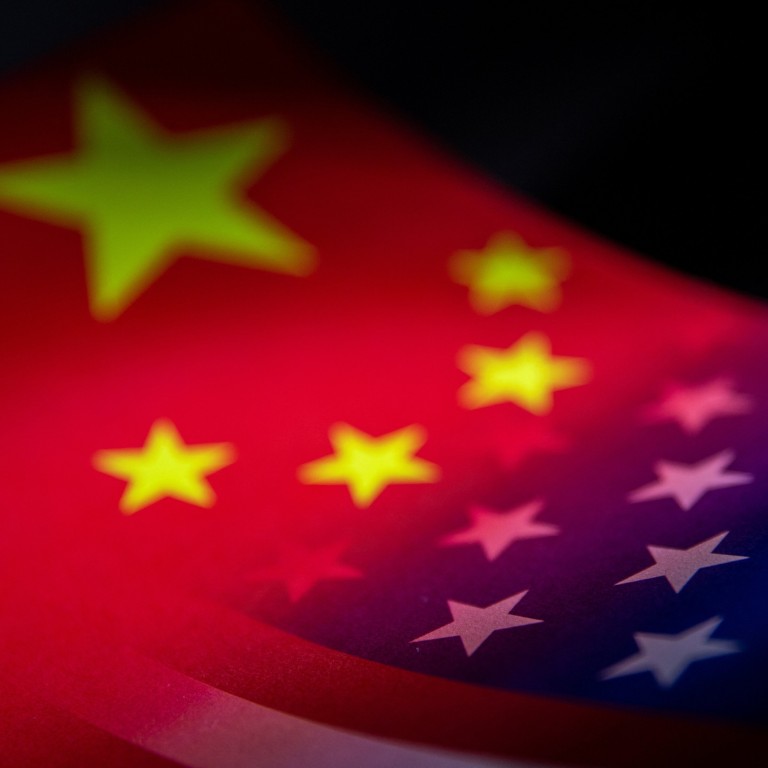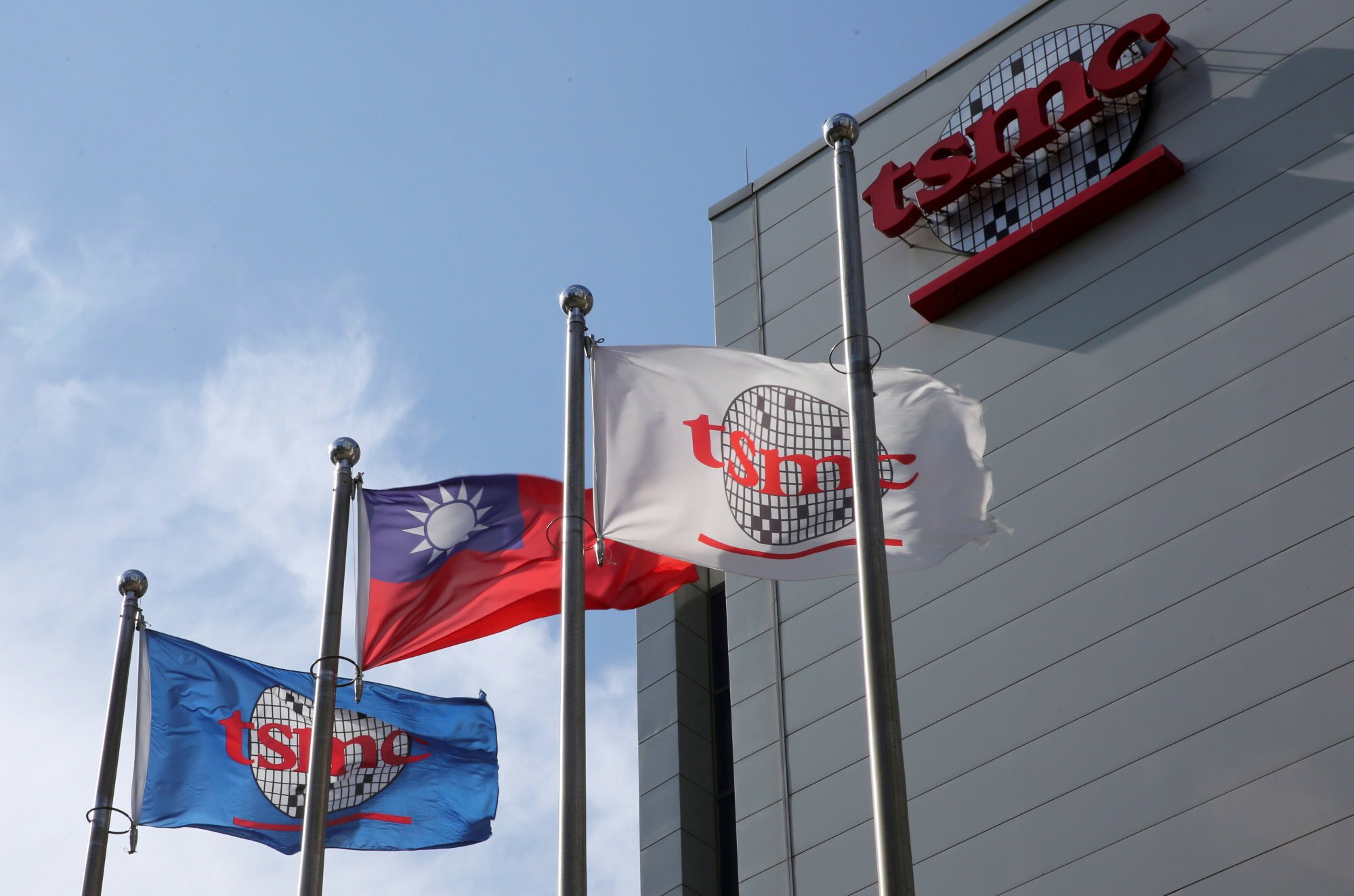
US-China tech war: Taiwan chip giant TSMC seeks geopolitical analyst amid US-China tensions
- The company, the world’s largest semiconductor foundry, has been caught in the middle of rising US-China tensions
- Taiwan has passed a revised draft of its national security law amid allegations of technology theft by mainland companies
Taiwan Semiconductor Manufacturing Co (TSMC), the world’s largest contract chip maker, is looking to hire talent with political expertise to help the firm with business analysis and decision-making, as it navigates a deepening US-China rivalry.
The Taiwanese company posted on Wednesday a job opening for a business intelligence analyst who is “interested in translating geopolitics and economic changes to impact on [the integrated circuit] industry supply chain”.
The ideal candidate should have a doctoral degree in international relations or political economics, be able to “connect the dots”, and articulate recommendations to the company for strategic planning, according to the advertisement.
This comes as TSMC faces increased challenges amid rising tensions between the US and China, which are racing to secure access to semiconductors that are vital in the production of a wide range of electronic products, from smartphones to computers.
TSMC’s opening for a geopolitics analyst stands out among a slew of job postings for engineers, as well as business analysts with MBA degrees, which make up the bulk of the company’s mid-level hirings, according to Arisa Liu, senior semiconductor research fellow at the Taiwan Institute of Economic Research.
This indicates that the company “has an increasing need for geopolitical intelligence and geopolitical assessment due to the rise of chip protectionism, the US-China tech war, and a tectonic shift in the global chip industry’s business environment”, Liu said.
TSMC is widely regarded as the world’s single most important chip foundry, capable of producing state-of-the-art chips. It is an endeavour that requires hefty investments and increased sophistication, as semiconductors become more advanced.
Why semiconductors are important in the US-China tech war
The company’s main plants, including some its most advanced ones, are based in Taiwan, the self-ruled island that maintains close ties with Washington, but is regarded by Beijing as a renegade province.
TSMC has accommodated some of Washington’s demands, such as submitting production data to US authorities, complying with US sanctions that bar it from supplying chips to certain companies, and building a 5-nanometre fabrication plant in Arizona.
In response to an inquiry from the South China Morning Post on Wednesday, TSMC said its construction of the Arizona plant was “on track” and that “its production schedule remains unchanged”.

TSMC’s compliance with US sanctions, which denies Huawei Technologies Co access to advanced chips, has dealt a blow to the Shenzhen-based Chinese telecommunications giant, and pushed China to work towards technological self-reliance.
Taipei’s tightened protection of sensitive technologies amid allegations of theft by companies on the mainland, Hong Kong and Macau has also made it difficult for Taiwanese business to set up plants on the other side of the Taiwan Strait.
On Thursday, Taipei passed a revised draft of the island’s national security law. It includes a “crime of economic espionage”, designed to tackle potential threats by the mainland to steal key technologies from the island and poach high-calibre professionals. Offenders face up to 12 years in prison.
Think tank pulls report saying China would suffer more in US tech decoupling
TSMC has been well aware of the difficulties it faces, as evidenced by its inclusion in all of its annual reports of a Chinese military invasion as one of its business risks, according to Sravan Kundojiala, a senior analyst at Strategy Analytics.
“Back in the day, [TSMC has] had issues with China investments, for which they needed permissions,” Kundojiala said. “I am sure [the hiring of a political analyst] is not rare, but increasingly becoming an important part of the story.”

